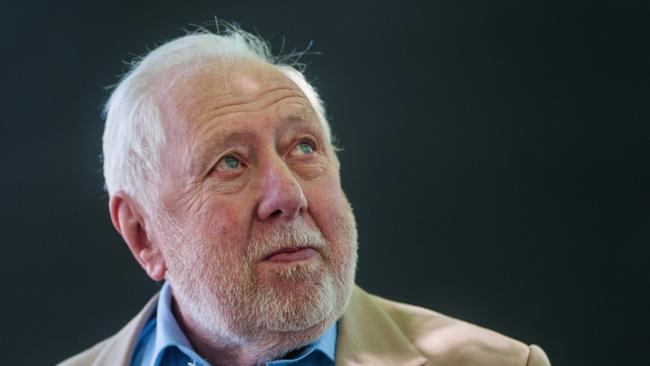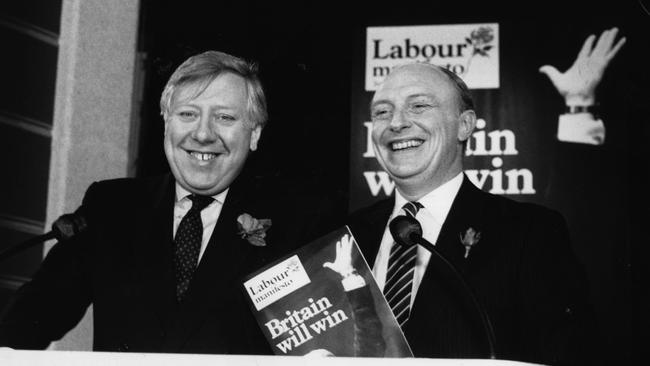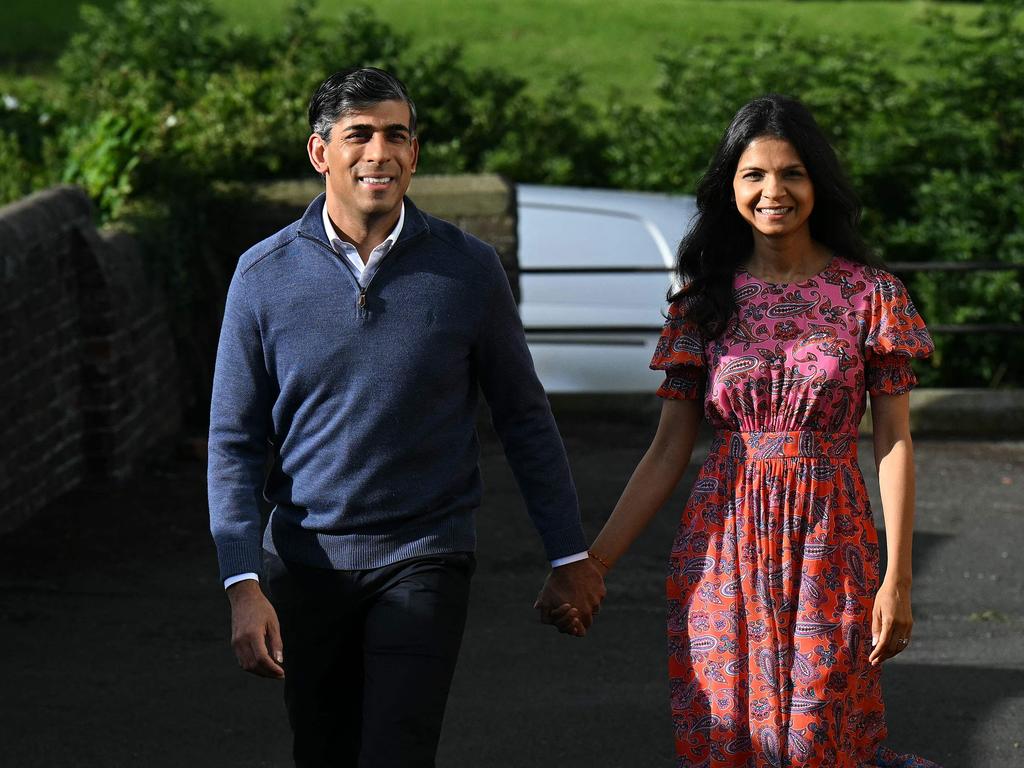Keir Starmer ‘steady’ and ‘reliable’ but not ‘spectacular’ says Labour grandee Roy Hattersley
There won’t be fireworks, but Labour veteran Roy Hattersley says that’s just fine for Britain.

He was a minister under Harold Wilson and Jim Callaghan, deputy Labour leader to Neil Kinnock, observed Ted Heath, Margaret Thatcher and John Major in parliament, and supported both Tony Blair and Gordon Brown making it to No.10 Downing Street. Keir Starmer, he judges, will not be like any of them.
“I don’t think he’ll make a spectacular prime minister,” Lord Hattersley, 91, tells Inquirer in a phone interview. “He’ll be a very steady prime minister. He’ll be in government as he was in opposition – careful, meticulous in his handling of situations, always prepared to take the difficult decisions and to see it through.”
“He’ll be a prime minister who is not notable for his imagination but is notable for the more challenged virtues – he’ll be honest, he’ll be reliable, he’ll be content in existence. He will be all the things that this Tory government has not been, which is why he was such an ideal choice as leader of the Labour Party.”
The election campaign, after 14 years of Conservative government, has also been unlike anything Hattersley has witnessed.

It is possibly a transformative moment. The Tories have been bracing for their worst election result in perhaps two centuries. Labour has recovered from its own near-death experience when led by Jeremy Corbyn and Starmer is the party’s third leader in nine years.
“Old timers like me have never seen anything remotely like this,” Hattersley says. “It is bizarre to an extreme. In British history, I don’t think there’s been an election campaign in which the governing party destroyed itself as part of the process. The basic reason we have been so many points ahead in the polls and will win a smashing victory is because the Tory Party has set itself on a suicide mission.”
A Labour government is rare. Ramsay MacDonald formed the first in 1924 and a second (1929-31) but remained in power with multi-party support and was expelled from Labour. Clement Attlee (1945-51), Harold Wilson (1964-70; 1974-76) and Jim Callaghan (1976-79) led the party in government before Tony Blair (1997-2007) and Gordon Brown (2007-10). That’s it.
In March 1967, Wilson promoted Hattersley to the junior ministry with responsibility for labour – then employment and defence. In 1974, Hattersley was elevated to the Foreign Office. He was never close to Wilson but rejects claims he was part of “a plot” to dislodge him in favour of Roy Jenkins, and admires how he managed the party and the government.
“He did much better than we thought at the time,” Hattersley says of Wilson. “He antagonised people by his attitudes and by his prejudices, but he was a pretty good prime minister. I think he was the second or third best since the war. He wanted to be seen as smart, clever, intellectually impressive, and he was. But he was also very reliable and very brave. He did some very good things.”
When Callaghan succeeded Wilson, he was promoted to secretary of state for prices and consumer protection. Hattersley enjoyed being in cabinet, the pinnacle of his career, but what he really wanted was the education portfolio. He believes Callaghan misjudged the timing of the next election, called for May 1979, and was defeated by Margaret Thatcher’s Conservative Party.
“He was a good prime minister but I think he could have been a very good prime minister,” Hattersley judges Callaghan. “He made a big mistake at the end of his tenure by not having an early election. We didn’t. We lost. If we had an early election, we would have won and Jim would have had another five years. And that would have changed the entire view of him in history.”
Labour’s new prime minister may be more like Wilson and Callaghan than Blair in style and substance. Hattersley suggests Labour supporters will need to temper their expectations for reform. But voters, after years of chaos and dysfunction, may be looking for a stable government rather than a courageous one. Starmer may suit the moment.
“The Wilson and Callaghan governments were extremely moderate and extremely unimaginative,” Hattersley recalls.
“The Starmer government will be depressingly unimaginative in economic policy. Those people wanting bold initiatives, who number a great deal, will be disappointed. It will be a solid government, it will be a reliable government but we won’t be a spectacular government.”
Starmer has moved Labour towards the centre but is to the left of Blair and Brown. He has taken a strong stand against anti-Semitism. He purged Corbyn and his acolytes from the party. He has been ruthless in taking control of MP selection, policymaking and party administration. He made the party electable. However, he lacks the gentle humour of Wilson, sunny optimism of Callaghan and popularity of Blair.
Hattersley was also a moderniser. In 1983, following the Labour split when the ultra-left effectively took over the party and the “Gang of Four” former ministers left to form the Social Democratic Party, Michael Foot stood down as leader. Hattersley thought Foot was “a good man” and “a wonderful journalist” but in “the wrong job”.
Kinnock, from the soft left, defeated Hattersley, from the right, in a ballot for leader. Hattersley was elected deputy. They decided to stay in the party and fight the militant left to revive Labour as a viable electoral force. They worked together to reform Labour’s policies, modernise its structures, and professionalise its communications and campaigning.

“Neil turned out to be much more un-left than many people expected,” he recalls. “I look back on the period with some pleasure. There were moments of great frustration but we kept the Labour Party in one piece for eight years and that, in itself, was a great achievement.”
While never personally close, they respected one another and almost returned Labour to power in April 1992. Hattersley, on reflection, says voters were never going to make Kinnock prime minister. But he adds that Kinnock was the only person who could shift Labour back to the political mainstream. Without Kinnock there would be no Blair, Brown or Starmer.
From the moment he entered politics in October 1964, Hattersley was a happy warrior. He was well read and a good speaker. He enjoyed classical music and show tunes alongside cricket and football. While jolly and chatty, and never overly concerned about bad publicity, he could also be direct and blunt. He was parodied on comedy shows such as Spitting Image.
Hattersley describes his upbringing in Sheffield, the so-called citadel of steel, as “upper working class”. He was educated at Sheffield Grammar and Hull University. He was a student leader, worked for the steelworks and the Workers’ Educational Association, and served on Sheffield City Council.
His family were Labour supporters and he recalled handing out election leaflets in 1945. But it was the writings of socialist R.H. Tawney that influenced him most. “It was all there in the text,” he says. A commitment to equality became his motivation in politics. He recalls seeking selection for almost every seat in Yorkshire before being accepted in southeast Birmingham.
After John Major’s government won re-election in 1992, a new Labour leadership team was chosen. John Smith, who had been shadow chancellor, led Labour until 1994. When Smith died after a heart attack, Hattersley urged Blair to run for leader, and he did.
After deciding not to recontest his seat at the May 1997 election, Hattersley was appointed to the House of Lords. He had mixed views about the Blair-Brown years and spoke out against policies he did not agree with. These were often dismissed as the complaints of Old Labour.
“It was a very good government in many ways but it was not a socialist government,” he argues. “I would have liked to have seen more socialism. I would have liked to have seen a clearer commitment to the ideological promotion of equality. One of the things that all my life I have said has afflicted the Labour Party is that it doesn’t say enough about what it stands for.”
During his time in parliament, and after, Hattersley worked as a journalist and wrote memoirs, biographies, histories and fiction. A Yorkshire Boyhood (1983) and Who Goes Home? (1995), both memoirs, are terrific reads. His biography of David Lloyd George (2010) is filled with insights into the Welsh Wizard.
Now in his ninth decade, Hattersley has few regrets about his time in politics. From a young age, a career in parliament is all he wanted to do. He loved the drama and excitement of politics, the unexpected twists and turns, the traditions and rituals, and the chance to make a difference. “I am congenitally happy,” he says. “I have a severe case of happiness which I cannot get rid of.”






Labour grandee Roy Hattersley has seen many prime ministers and would-be prime ministers come and go in the 60 years since he was elected to the House of Commons. They each had their own styles and temperaments, different motivations and ambitions, but all wanted to leave their mark on Britain.